Making a character in Pathfinder Second Edition is a process that most experienced gamers will find familiar, but wherever possible, we made changes to make the process more intuitive while still giving you a mountain of choices and flexibility. It all starts with imagining the character you want to play. Maybe you want to be a ferocious dwarven warrior who takes on the aspects of an animal in the heat of battle. Maybe you want to play a wise-cracking elven con artist who grew up on the streets, but now plays at being a member of high society. Or maybe you just want to make a mysterious wizard that loves to blow things up. Pathfinder gives you all the tools to make these characters and countless more! Even if you don't have a complete concept in mind, the steps of character creation in Pathfinder are there to help you make the big decisions and focus in on a character that you are excited to play.
Learning your ABCs
With a concept in mind (no matter how fully formed), the next step is to make the major decisions about your character. We call these decisions your ABCs because you need to decide on your character's Ancestry, Background, and Class. By making these big choices, along with any additional decisions that come with each, the character you want to play will take shape!
Think of these choices as deciding the major moments in your character's youth. First off you were born, the details of which are decided by your Ancestry. Next up is your youth, which is molded by your Background. Finally, your Class decides the life you have chosen to live as an adventurer. Along each step of the way, you will make additional decisions that reinforce and shape the image of your character. Chief among these are your ability scores. Each step of your ABCs impacts your ability scores, giving boosts and flaws to these six vital stats, changing your raw potential to accomplish tasks and overcome danger.
Details and Polish
Throughout the character creation process, you must record a variety of details about your character. Many of these are simple proficiency upgrades, noting your character's aptitude at performing specific tasks or resisting effects. Others require you to select from a list of options, like your ancestry's heritage or a feat from your class. Every single choice you make influences what you can accomplish during play, making you different from the others around you. Even if some of the big choices are the same, these smaller decisions can make two clerics, for example, play entirely differently. One might be a virtuous warrior priest, fighting for her deity with blade and shield, while the other is a pious adherent, using spells and sermons to preach a peaceful path.
Once all of the choices have been made, it's time to buy your starting gear and begin filling out all of your statistics. Starting heroes have precious few gold pieces to start with and buying the right gear can mean the difference between a glorious career and a forgotten grave.
Iakhovas
To illustrate this process, I'll be building a Second Edition version of one of my First Edition Pathfinder Society characters, named Iakhovas.
Step 1: Create a Concept
What sort of hero do you want to play? The answer to this question might be as simple as "a brave warrior," or as complicated as "the child of elven wanderers, but raised in a city dominated by humans and devoted to Sarenrae, goddess of the sun." Consider your character's personality, sketch out a few details about their past, and think about how and why they adventure. Many character concepts center around the character's class, their ancestry, or both, so it might be a good idea to flip through the available ancestries and classes to help inspire you. The Core Rulebook includes a helpful spread with a quick summary of each.
Your character's concept might also center around their background, personal identity, deity, relationship to the other characters, or anything else you can imagine!
Iakhovas: Concept
My concept for Iakhovas was a defense-focused master of all martial techniques, skilled and willing to protect and train others, shaped by the death of his sister and his revenge against the vampire Talia Nightcrescent, whose staking makes him a wanted murderer in the undead-dominated nation of Geb. This concept means Iakhovas is a Garundi human, probably either a fighter or a monk.
Step 2: Start Building Ability Scores
Start all ability scores at 10 in preparation for the later steps. This is a good time to start thinking about what ability scores will be important for your character. You can even jot down your ability scores as you adjust them on your character sheet.
Above you'll see a character sheet with numbered indicators to show you where you need to write something in each numbered step.
Iakhovas: Ability Scores
I start all of Iakhovas's ability scores at 10. Thinking about the way I see him fighting, I think he's likely to fight with a combination of strength and grace in order to be a master of all martial techniques, so I'm likely to prioritize Dexterity and Strength. I see him as being wise and fit as well, so if I get a chance, I might want to raise Constitution or Wisdom.
Step 3: Select an Ancestry
Select an ancestry for your character. Ancestry determines your character's size, Speed, and languages, and contributes to their Hit Points. Each also grants ability boosts and ability flaws to represent the ancestry's basic capabilities.
You'll make four decisions when you select your character's ancestry:
- Pick the ancestry itself.
- Assign any free ability boosts and decide if you are taking any voluntary flaws.
- Select a heritage from those available within that ancestry, further defining the traits your character was born with.
- Choose an ancestry feat, representing an ability your hero learned at an early age.
Iakhovas: Ancestry
Since I selected human for Iakhovas's ancestry, he is Medium size, has a 25-foot Speed, speaks Common and Osiriani to start, and begins with 8 Hit Points from his ancestry.
Both of his ability boosts are free, so I assign them to Strength and Dexterity, the two I decided were most important to him in Step 2. This brings him to 12 Strength and Dexterity. I don't see Iakhovas as being particularly unintelligent or uncharismatic, and I said I wanted to try to raise the other four ability scores, so I won't be taking any voluntary flaws.
For Iakhovas's heritage, I have some great options. Mechanically, the half-elf and half-orc heritages bring a lot to the table, with better vision and access to some excellent new feats, but conceptually, I pictured Iakhovas as a standard human. I eventually choose the skilled heritage, since that will help me fulfill my concept of being skilled a little better, even if I can't invest as much in Intelligence. Since I want him to be a master of all martial techniques, I choose Athletics as his trained skill from his heritage.
Finally, I choose an ancestry feat. Haughty Obstinancy has a nice benefit against vampiric domination, but it doesn't really fit his personality. Natural Skill would give him yet more skills, and Cooperative Nature would grant him an incredible +4 circumstance bonus to Aiding his allies, both of which fit his concept, but eventually I decide to take Natural Ambition, which will grant him another class feat and help him be a master of all martial techniques. I can wait and choose the class feat later on, as Natural Ambition mentions.
Step 4: Pick a Background
Your character's background might represent their upbringing, an aptitude they've been honing since their youth, or another aspect of their life before they became an adventurer. They typically provide two ability boosts (one that can be applied to either of two specific ability scores, and one that is free), training in a specific skill, training in a Lore skill, and a specific skill feat.
Iakhovas: Background
Iakhovas's background is one of the parts of him that is most difficult to quantify here. He and his sister were used for their blood by a vampire—the sister of a Blood Lord of Geb—until the vampire overfed and killed his sister, breaking him free of his domination and leading him to stake the vampire while she slept. Then wanted for murder, he escaped Geb and joined the Pathfinders, trading his loyalty for the promise of asylum. He is certainly a criminal in Geb, and criminal is a background, but he hasn't really lived the life of a criminal, so the mechanical elements wouldn't make much sense. Laborer is normally a good choice for characters enslaved by evil creatures, but that background is about a life of manual labor, and Iakhovas was kept around for his blood. My other options are acolyte, acrobat, animal whisperer, artisan, artist, barkeep, barrister, bounty hunter, charlatan, detective, emissary, entertainer, farmhand, field medic, fortune teller, gambler, gladiator, guard, herbalist, hermit, hunter, martial disciple, merchant, miner, noble, nomad, prisoner, sailor, scholar, scout, street urchin, tinker, or warrior.
If I was using Lost Omens World Guide, I would have the absolutely perfect background, "Quick."
As is, I still have a good choice with the core: I can focus not on who he was in Geb but who he has become, and choose martial disciple, so that's what I do.
For my ability score, I can't go wrong since it has my two favorite options! I take Strength and Dexterity both (They are both now 14). I'm already trained in Athletics from my heritage, so I choose Acrobatics for my skill, gaining the Cat Fall skill feat. Then I gain Warfare Lore automatically.
Step 5: Choose a Class
At this point, you need to decide your character's class. A class gives your character access to a suite of heroic abilities, determines how effectively they fight, and governs how easily they can shake off or avoid certain harmful effects. You don't need to write down all of your character's class features yet. You simply need to know which class you want to play, which determines the ability scores that will be most important for your character.
Iakhovas: Class
OK, this is the moment of truth. I knew I was going to build him as either a monk or a fighter, and now that I've followed him down this journey, I'm thinking monk! It's okay, I'll take the fighter archetype later to really mix up his martial techniques. At this point I'm just recording my key ability score from monk. I get to pick Strength or Dexterity again—my two favorites—but this time I'm forced to choose between them. After a little internal debate, I decide on Strength, so Strength is now 16.
Step 6: Determine Ability Scores
Now that you've made the main mechanical choices about your character, it's time to finalize their ability scores. Do these three things:
Remember that each ability boost adds 2 to the base score of 10, and each ability flaw subtracts 2. You should have no ability score lower than 8 or higher than 18.
- First, make sure you've applied all the ability boosts and ability flaws you've noted in previous steps (from your ancestry, background, and class).
- Then, apply four more ability boosts to your character's ability scores, choosing a different ability score for each and increasing that ability score by 2.
- Finally, record your starting ability scores and ability modifiers.
Iakhovas: Ability Scores
After applying the previous steps, I have Strength 16, Dexterity 14, and all the rest 10. For my four additional boosts, I'll choose to boost Strength and Dexterity again, and then Wisdom and Constitution, which I had been looking for a way to boost but hadn't until now. This leaves me with Strength 18, Dexterity 16, Constitution 12, Intelligence 10, Wisdom 12, Charisma 10.
Step 7: Record Class Details
Now, record all the benefits and class features that your character receives from the class you've chosen. While you've already noted your key ability score, you'll want to be sure to record the following class features.
- To determine your character's total starting Hit Points, add together the number of Hit Points your character gains from their ancestry and the number of Hit Points they gain from their class.
- The Initial Proficiencies section of your class entry indicates your character's starting proficiency ranks in a number of areas. Choose which skills your character is trained in and record those, along with the ones set by your class. If your class would make you trained in a skill you're already trained in (typically due to your background), you can select another skill to become trained in.
- See the class advancement table in your class entry to learn the class features your character gains at 1st level—but remember, you already chose an ancestry and background. Some class features require you to make additional choices, such as selecting spells.
Iakhovas: Class Details
With 8 Hit Points from his human ancestry, 10 from the monk class, and 1 from Constitution, Iakhovas ends with a very respectable 19 HP. His initial proficiencies tell me he is trained in Perception, has expert proficiency in all three saving throws, is trained in simple weapons and unarmed attacks, is untrained in all armor but has expert proficiency in unarmored defense, and has trained proficiency in monk class DC. He's also trained in a number of skills equal to 4 plus his Intelligence modifier, so four. Since he already has Acrobatics and Athletics, I decide his other skills are Medicine since he would have needed to perform to bandage up and handle lost blood, Stealth for sneaking around and escaping the notice of the undead, Religion to represent his new faith in Pharasma (goddess of death) and his knowledge of undead weaknesses, and Diplomacy to cover the way he likes to instruct new recruits—in a friendly fashion rather than like a drill sergeant.
The advancement table shows me he also gets powerful fist, the incredibly potent Flurry of Blows action, and a monk feat of my choice!
Now it's time to choose my monk feat. And I get two feats, thanks to Natural Ambition. As a master of all martial techniques, I definitely want Iakhovas to have a stance. Looking through the options, there are a lot of very good choices. Dragon Stance and Wolf Stance are both strong using the stats I have right now, but Mountain Stance is tempting, even if it would mean I'd need to go back and rearrange some earlier choices to deprioritize Dexterity.
Offense, or mobility? This would grant a great deal of either when I needed them most, and as a monk, I could spend 10 minutes to meditate and strive for inner peace in order to recover my Focus Points, letting me use this in most battles as long as we rest between them. It's the closest call yet, but I decide to go for ki strike. I'll be keeping an eye on the party's offense vs. my ability to outpace my foes' movement and potentially retraining if I find out ki rush would have been more useful.
Step 8: Buy Equipment
At 1st level, your character has 15 gold pieces (150 silver pieces) to spend on armor, weapons, and other basic equipment. Your character's class lists the types of weapons and armor with which they are trained (or better!). Their weapons determine how much damage they deal in combat, and their armor influences their Armor Class; these calculations are covered in more detail in Step 10. Don't forget essentials such as food and traveling gear!
.Iakhovas: Equipment
As a monk, I don't really need too many weapons or armor, though a ranged weapon would be nice. I'll be fine with a monk's kit for 4 gp and 9 sp, plus maybe 10 javelins for 1 more gp for a ranged attack. Just because Iakhovas hates vampires so much, I spend 3 of my remaining gp on a vial of holy water, leaving plenty of money to help out others if necessary.
Step 9: Calculate Modifiers
With most of the big decisions for your character made, it's time to calculate the modifiers for your statistics. If your proficiency rank for a statistic is trained, expert, master, and legendary, your bonus equals your character's level plus another number based on the rank (2, 4, 6, and 8, respectively). If your character is untrained, your proficiency bonus is +0.
Iakhovas: Modifiers
Iakhovas winds up with +4 Perception (1 from level, 2 from trained proficiency, 1 from Wisdom), +6 Fortitude, +8 Reflex, +6 Will, +7 to hit with his melee attacks, +6 to hit with his ranged attacks, and a variety of trained skills, ranging from Athletics at +7 to Diplomacy and Warfare Lore at +3. He does 1d6+4 damage with his fist, 1d8+4 with his wolf jaw, and 1d6+4 with his thrown javelins.
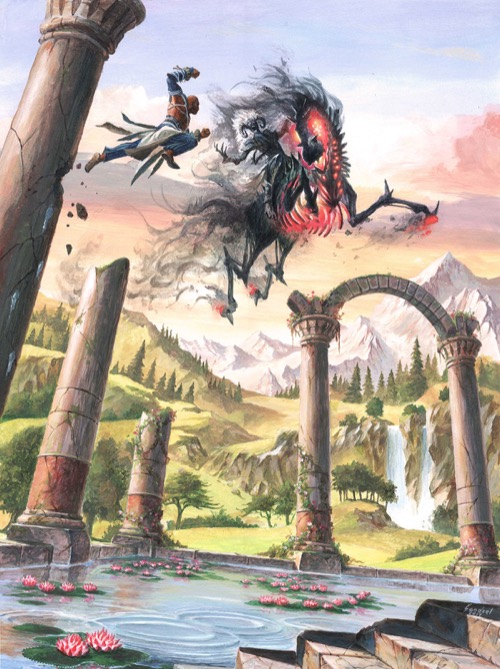
Illustration by Mariusz Gandzel
Step 10: Finishing Details
At this point, you fill in all the details, including those to breathe more life into your character's personality like alignment, deity, age, and gender and pronouns, and those last mathematical details that weren't part of your modifiers like class DC, hero points, AC, and Bulk.
Iakhovas
As a devout Pharasmin but a team player who is often selfless in pursuit of protecting others, I definitely see Iakhovas as either neutral or neutral good. I decide on neutral good, and we'll see if that shifts during play. He is in his late 20s, after an early youth lost to vampiric domination. I decide to go with 28. His gender is male and he uses he/him pronouns. His class DC, as we saw before, is trained, and it's based on his Strength, so it would be 17 (10 + 4 from Strength + 1 from level + 2 for being trained). He generally would start a session with 1 Hero Point. His AC would be a solid 18 (10 + 3 from Dexterity + 1 from level + 4 from being an expert). Finally, he is carrying 5 Bulk and 3 light (4 Bulk 2 light from the monk kit, 1 more Bulk entirely of javelins, and then 1 light for holy water). He can carry way more than this, so he can probably help other team members who might be having trouble.
And that's it! What character are you going to be building first in Pathfinder Second Edition? Let me know in the comments below!
Mark Seifter
Designer
s
Experience Builds Character
Tuesday, July 2, 2019
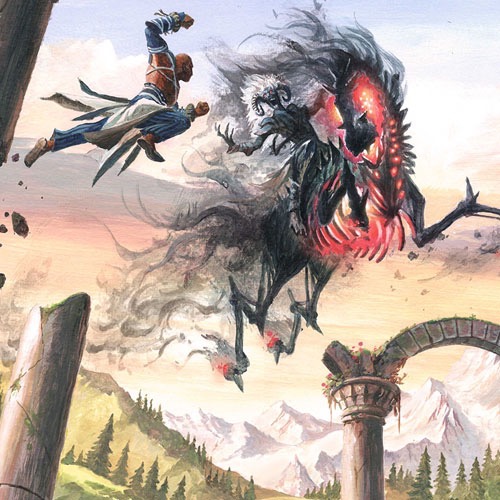
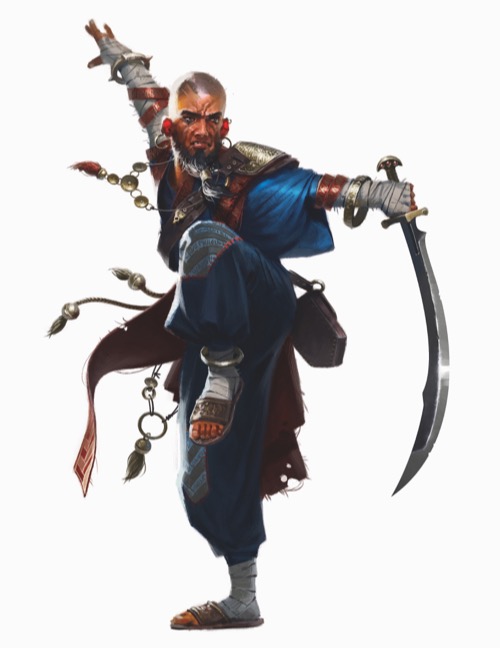
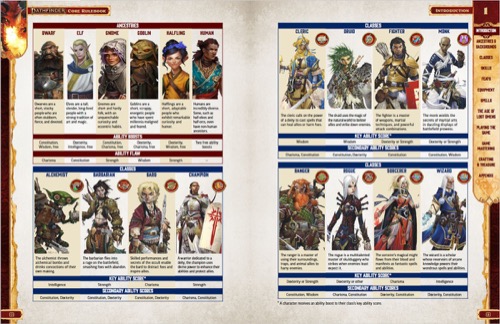
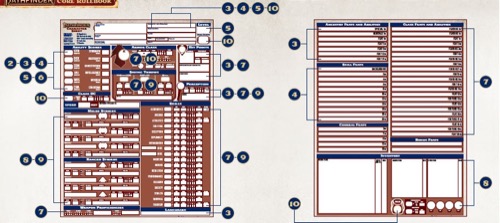
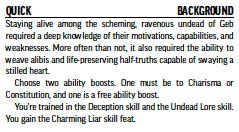
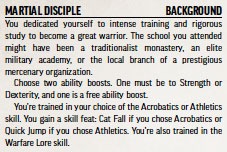
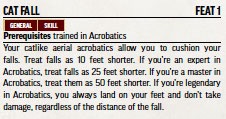
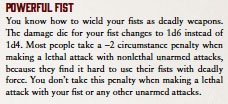
![Flurry of Blows [one-action]. Flourish. Monk. Make two unarmed Strikes. If both hit the same creature, combine their damage for the purpose of resistances and weaknesses. Apply your multiple attack penalty to the Strikes normally. As it has the flourish trait, you can use Flurry of Blows only once per turn.](https://cdn.paizo.com/image/content/Blog/20190702-flurryofblows.jpg)
![Dragon Stance [one-action]. Feat 1. Monk. Stance. Requirements: You are unarmored. You enter the stance of a dragon and make powerful leg strikes like a lashing dragon's tail. You can make dragon tail attacks that deal 1d10 bludgeoning damage. They are in the brawling group and have the backswing, nonlethal, and unarmed traits.
While in Dragon Stance, you can ignore the first square of difficult terrain while Striding.](https://cdn.paizo.com/image/content/Blog/20190702-dragonstance.jpg)
![Mountain Stance [one-action]. Feat 1. Monk. Stance. Requirements: You are unarmored and touching the ground. You enter the stance of an implacable mountain—a technique first discovered by dwarven monks—allowing you to strike with the weight of an avalanche. The only Strikes you can make are falling stone unarmed attacks. These deal 1d8 bludgeoning damage; are in the brawling group; and have the forceful, nonlethal, and unarmed traits.
While in Mountain Stance, you gain a +4 status bonus to AC and a +2 circumstance bonus to any defenses against being Shoved or Tripped. However, you have a Dexterity modifier cap to your AC of +0, meaning you don't add your Dexterity to your AC, and your Speeds are all reduced by 5 feet.](https://cdn.paizo.com/image/content/Blog/20190702-mountainstance.jpg)
![Wolf Stance [one-action]. Feat 1. Monk. Stance. Requirements: You are unarmored. You enter the stance of a wolf, low to the ground with your hands held like fanged teeth. You can make wolf jaw unarmed attacks. These deal 1d8 piercing damage; are in the brawling group; and have the agile, backstabber, finesse, nonlethal, and unarmed traits.
If you’re flanking a target while in Wolf Stance, your wolf jaw unarmed attacks also gain the trip trait.](https://cdn.paizo.com/image/content/Blog/20190702-wolfstance.jpg)
![Ki Rush. Focus 1. Uncommon. Monk. Transmutation. Casting [one-action]: verbal. Accelerated by your ki, you move with such speed you become a blur. Move two times: two Strides, two Steps, or one Stride and one Step (in either order). You gain the concealed condition during this movement and until the start of your next turn. | Ki Strike. Focus 1. Uncommon. Monk. Transmutation. Casting [one-action]: verbal. You focus your ki into magical attacks. Make an unarmed Strike or Flurry of Blows (this doesn't change the limit on using only one flourish per turn). You gain a +1 status bonus to your attack rolls with the Strikes, and the Strikes deal 1d6 extra damage. This damage can be any of the following types of your choice, chosen each time you Strike: force, lawful (only if you're lawful), negative, or positive.](https://cdn.paizo.com/image/content/Blog/20190702-kirushstrike.jpg)